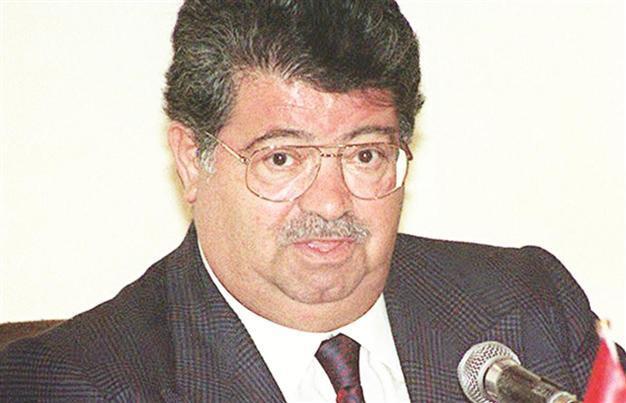Doubts linger on late Turkish President Özal’s death
ISTANBUL - Hürriyet Daily News

A prosecutor is expected to shed light on the death of ex-President Özal. AFP photo
An autopsy on the exhumed remains of Turkish President Turgut Özal, who died in office in 1993, has reportedly revealed traces of toxic substances but reached no concrete results on the cause of death. “Toxic substances were detected in the Forensic Medicine Council [ATK] report, but experts could not conclude whether the death was caused by poisoning,” media reported yesterday.
The report arrived at the Ankara Republican Prosecutor’s Office yesterday. The prosecutor is expected to make announcement on the issue today or tomorrow.
Deputy Prime Minister Bekir Bozdağ said yesterday that he still had doubts about whether Özal died of natural causes. “In my opinion, the report didn’t eliminate the doubts. At least, my doubts continue,” Bozdağ told reporters at Parliament.
His remarks came when he was asked about media reports that an autopsy showed that the exhumed body of Özal, who led the country out of military rule in the 1980s, contained poison but that the cause of death was unclear.
Deputy PM not convincedBozdağ said he had the very same doubts the day Özal died in 1993, adding that the ATK had not eliminated the doubts but rather raised more questions.
“If there is poison in his body, where did this poison come from, did the body produce it?” Bozdağ said, adding that he could not see any particular explanation on this point within the reports.
The investigation is still continuing and everybody will see together what it includes, Bozdağ said when asked whether the scope of the investigation might be expanded.
There have long been rumors that Özal, who died of heart failure in 1993 aged 65, was murdered by militants of the “deep state” – a shadowy group within the Turkish state. Özal had angered some with his efforts to end a Kurdish insurgency and survived an assassination attempt in 1988.
The ATK completed the autopsy on Dec. 11 and the results will be sent to prosecutors investigating suspicions of foul play, state-run Anatolia news agency said.
“Poison was detected in Özal’s body during the analysis, but experts could not agree on whether the cause of death was this poison,” broadcaster NTV reported.
Speaking yesterday to reporters, Parliamentary Speaker Cemil Çiçek refused to comment on the autopsy report at length.
“I cannot know this. It is entirely a technical issue,” Çiçek said. Noting that the issue was already being handled by prosecutors, Çiçek added: “You know, on principle, if an issue is passed to the judiciary, I don’t speak until the judiciary makes its decision. Accordingly, if the [forensic] report is handed over, its assessment will be made by judicial authorities and we will honor that decision.”
It is not right to add more rumors to the current speculation over Özal’s death, Deputy Prime Minister Bülent Arınç said yesterday. “Let’s wait for the forensic medicine report. These reports may not actually be definite and concrete,” Arınç said, noting that if the prosecutors do not find the report sufficient, they will find another way to clarify the issue.
Peace and Democracy Party (BDP) Diyarbakır deputy Altan Tan, meanwhile, said yesterday that the report in the media had fueled his suspicions over the death. “Following years of debate, the grave is opened and [there is] no result yet again. Could there be such a Forensic Medicine Institute? It happens like this when the Forensic Medicine Institute is working under the orders of the ‘deep state.’
The prime minister should clean up this scandal. My suspicions that Özal was killed have increased following the Forensic Medicine Institute report. However, we don’t have any evidence in our hands,” Tan said.
